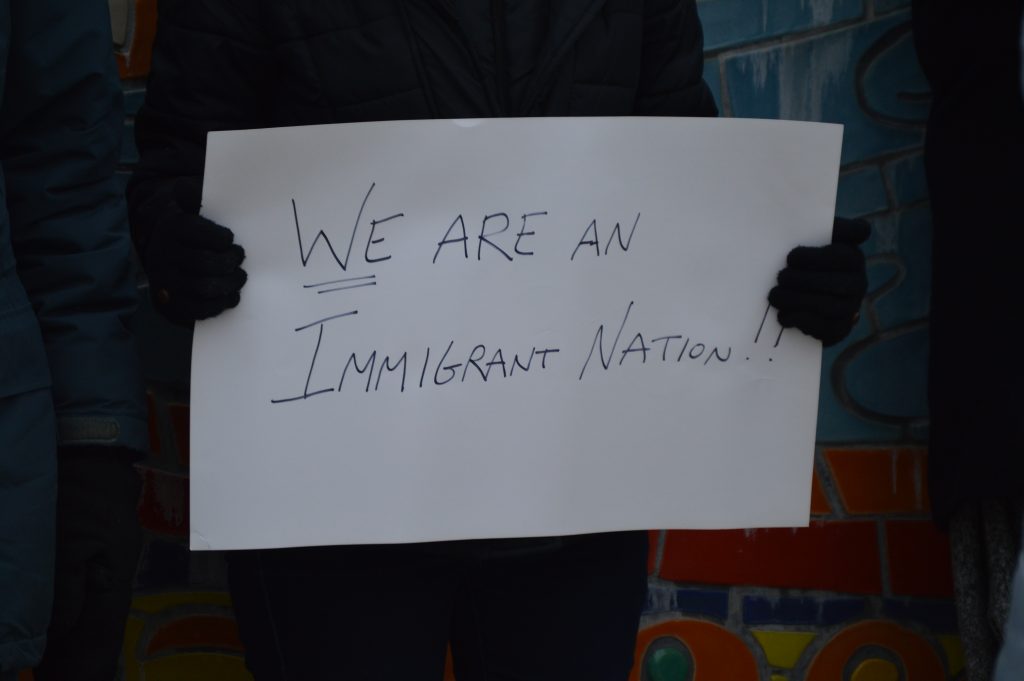Metro Detroit Immigrant Communities Weigh In on 2020 Election
“Over the last four years immigration has become a top issue,” says Global Detroit’s Executive Director Steve Tobocman during a conversation about what local immigrant communities are saying and thinking ahead of November 3rd.

According to the Pew Research Center, about one in ten people who are eligible to vote in the United States’ 2020 presidential election are immigrants. Immigrants are a significant voting bloc here in the U.S. and since 2016, they’ve become one of the most politicized segments of our country’s population.
Ahead of the general election, Detroit Today’s Stephen Henderson catches up with a couple of people who are actively working within local immigrant communities to talk about what they’re hearing and seeing in the days leading up to November 3rd.
Listen: Metro Detroit Immigrant organizations on the presidential election
Guests:
Steve Tobocman is the Executive Director of Global Detroit. On the topic of the sheer diversity among various immigrant populations, Tobocman says, “So often the national news narrative colors people’s view of immigration and so all they see if our Southern border, which is an important group… but the number one country of origin [of SE Michigan immigrants] is India and, in fact, many Middle Eastern countries are among our top ten sources of immigrants here in metro Detroit.”
He says that there are more than 425,000 foreign-born people living in metro Detroit, and that the immigrants in this region of Michigan make up about 65% of the state’s total immigrant population. He says that with the pandemic, economic woes, healthcare and high political tensions, immigrants are thinking about many of the same things that we’re all thinking about. “Over the last four years (immigration) has become a top issue,” Tobocman adds.
Hayg Oshagan is the Director of New Michigan Media and Associate Professor of Media Studies at Wayne State University.
Oshagan points to what he’s been hearing from the top immigrant groups in SE Michigan: Latinos, Bangaldeshi and Arab communities. “They have some similar concerns and some separate as well. There is general dissatisfaction with the Biden campaign as a whole in the way that the campaign has reached out to them,” says Oshagan.
He notes that in general, immigrant communities are much more activated this year than normal, including the Bengali community, which is not always active in elections. Yet, he says that the Biden campaign is making the same mistake he saw Hillary Clinton make four years ago — sending surrogates instead of directly engaging with these groups. He notes that these groups will still support Biden, but that the campaign is missing an opportunity for real outreach and even greater mobilization.
Trusted, accurate, up-to-date
WDET is here to keep you informed on essential information, news and resources related to COVID-19.
This is a stressful, insecure time for many. So it’s more important than ever for you, our listeners and readers, who are able to donate to keep supporting WDET’s mission. Please make a gift today.
